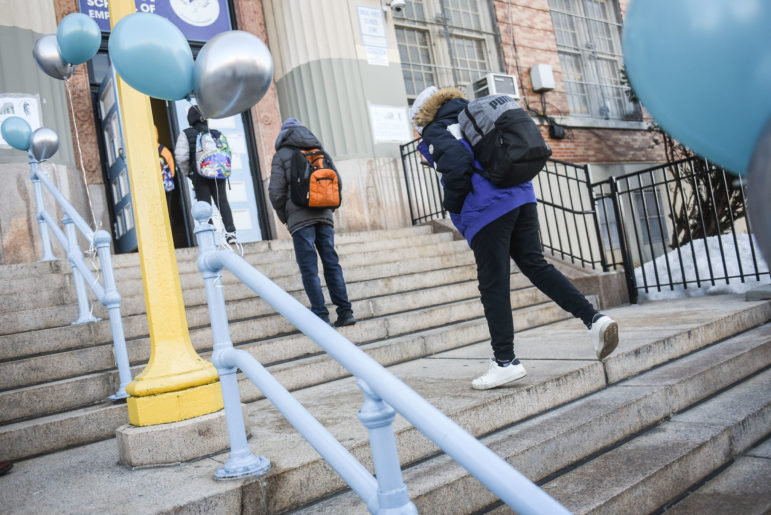More than two dozen Brooklyn organizations found themselves left out of a $41 million funding package in November, virtually ensuring that their community-based AIDS programs will be shut down at the end of February. Last month, the city announced it had found another $5 million to disburse–but that hasn’t placated the Brooklyn organizations.
“This is basically a plan where federal money is being shifted from programs that serve people of color to white people,” charges Carol Horwitz, a lawyer at the Brooklyn Legal Services Corporation A, whose group was left off the November list. In 1997, her organization received $105,000 in federal Ryan White Care Act Title I funding to provide services for people with HIV ranging from custody planning to representation in eviction proceedings.
According to Horwitz, 75 percent of the federal funding that formally went to Brooklyn community-based organizations was moved to Manhattan-based groups like the Gay Men’s Health Crisis. The Mayor’s Planning Council on HIV/AIDS had mandated that the funds be granted to geographically appropriate CBOs with a long history of serving their communities.
The nonprofit Medical and Health Research Association of New York (MHRA)–which had been contracted by the city to disburse the $41 million in Ryan White funds for 1998–received more than 500 proposals, giving the green light to 172 programs from 103 agencies. The 25 defunded Brooklyn organizations include two of the three Haitian-run AIDS programs in Brooklyn and nine out of 10 support groups serving AIDS sufferers and their families in Crown Heights, Brownsville and East New York.
“Seventy percent of new AIDS cases are in the outer boroughs,” says Abigail Hunter of the Williamsburg/Greenpoint/Bushwick HIV Care Network, one of three Brooklyn umbrella groups for community-based HIV organizations. “The planning council directive of giving more money to local CBOs was meant to address the situation. The present funding has done the opposite.”
“The 1998 contracts are based on extremely objective criteria set up by the city’s Ryan White Planning Council, the state AIDS Institute and the federal government,” counters Fred Winter, a spokesman for the city’s Department of Health. “Citywide contracts are given out because of economies of scale. There is a finite amount of money available, and there are always worthy programs that won’t be funded.”
However, Barbara Turk of MHRA’s HIV Care says $5 million in additional Ryan White funding will soon be made available for 1998: $2.4 million for case management and $2.6 million for treatment, education and client advocacy. She says her organization will go back to the list of applicants to award additional grants.
“The $2.6 million set aside for critical gaps in services does not in any way make up for the money cut in Brooklyn,” Horwitz responds. Hunter adds, that once the funds have been allocated to 17 different categories, there is only $131,000 for food and nutrition programs citywide–and merely $41,000 for support groups. “That’s not enough for one program,” she says, “let alone programs citywide.” The coalitions are asking the mayor’s office to stop contract negotiations with the grantees and extend 1997 funding until the new grants are reviewed.








